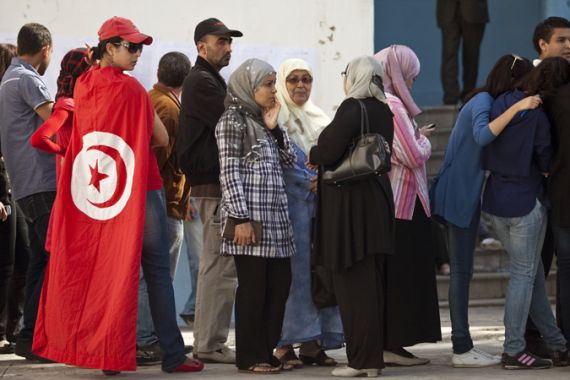
Tunisia’s polls: a model for the Arab world?
Inside Story asks if the Tunisian elections provide a template for the democratic process in neighbouring countries.
Nine months ago Tunisians brought down the government of Zine El Abidine Ben Ali, sparking a wave of anti-government uprisings in many parts of the Arab world.
On Sunday, Tunisians went to the polls to elect a constituent assembly that will write the country’s new constitution.
Revolutions are still underway in other Arab nations – but the hope is that this election will pass peacefully, providing another Tunisian model for the rest of the Arab world to follow.
But much of the debate surrounding the elections has focused on the moderate Islamist party, Ennahdha. It was banned in the 1980s by the former regime but pre-election polls indicate that it is likely to win the highest number of votes.
Some of its rivals accuse Ennahdha of wanting to impose Islamic law in Tunisia. However, the party’s leaders say they will respect the choice of all Tunisians, secular and religious, and insist there is no contradiction between Islamic faith and democracy.
So what kind of government and what kind of constitution will emerge? And is this a template for the democratic process underway in neighbouring countries?
Inside Story, with presenter Mike Hanna, discusses with guests: Yusra Ghannouchi, a member of the Ennahdha party and daughter of Rachid Ghannouchi; Ayesha Sabavala, an economist at the Economist Intelligence Unit; and Hall Gardner, a professor and chair of international and comparative politics at the American University of Paris.
|
“This is a historic day, Tunis was born again today, the Arab Spring was born again today, not in a negative way of toppling dictators but in a positive way of building democratic systems – a representative system which represents the people.” Rachid Ghannouchi, the head of the Ennahdha Party |